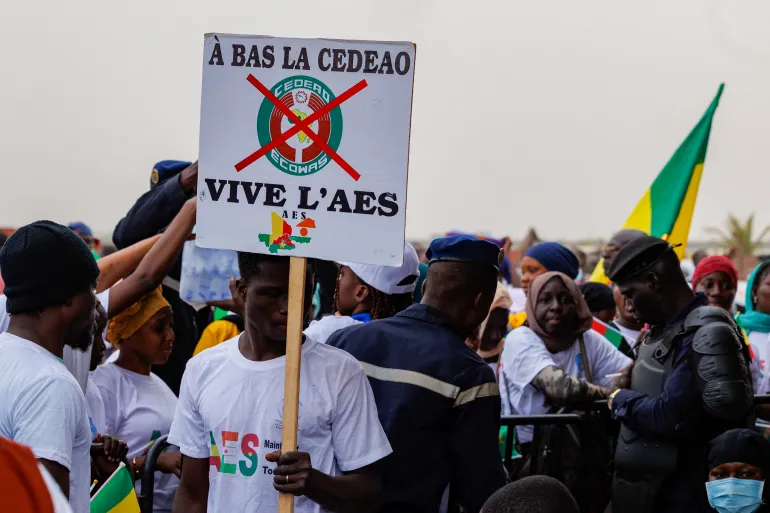Mali – It’s been a week since Mali’s military government announced its decision to withdraw from the Economic Community of West African States (ECOWAS) but Bamako, the country’s capital, is still buzzing with energy.
In the early hours of the morning, the roads are bustling with city buses pushing through traffic jams, while market vendors walk hastily to their stalls to get the day started. But beneath that layer of normality are mounting concerns about leaving the 15-member regional bloc which Mali joined in 1975.
“It has become harder to get by and provide for my family,” Djadjie Camara, a shopkeeper in the city told Al Jazeera. “ECOWAS is the organisation who started all of this and made our lives harder. Life is hard for us, but I trust that leaving ECOWAS will benefit us in the end.”
ALSO READ: Florida withdraws $2 billion from the world’s largest investment business over ESG criticism
After back-to-back coups in Mali within a year led to Colonel Assimi Goita becoming head of state in May 2021, the bloc slapped economic sanctions on the landlocked nation to push the transitional government to hold elections within a reasonable timeframe.
But that hit an economy grappling with blows from the COVID-19 pandemic and shocks from Russia’s war in Ukraine, hard. Inflation rose, with the cost of basic items like oil and sugar more than doubling. Since then, many Malians, including Camara, have embraced the government’s gradual distancing from the regional entity.
SOURCE: Aljazeera

For comments, Feedback and Opinions do get in touch with our editor on WhatsApp: +44 7949 297606.
